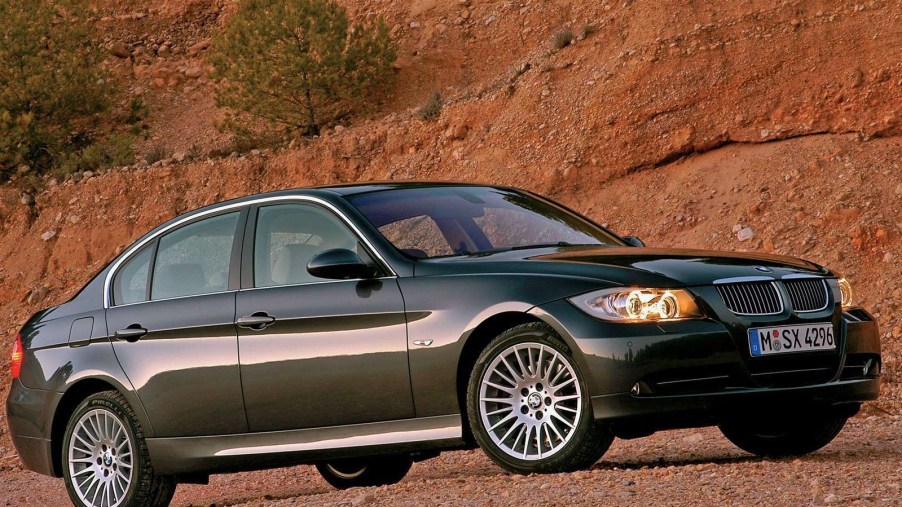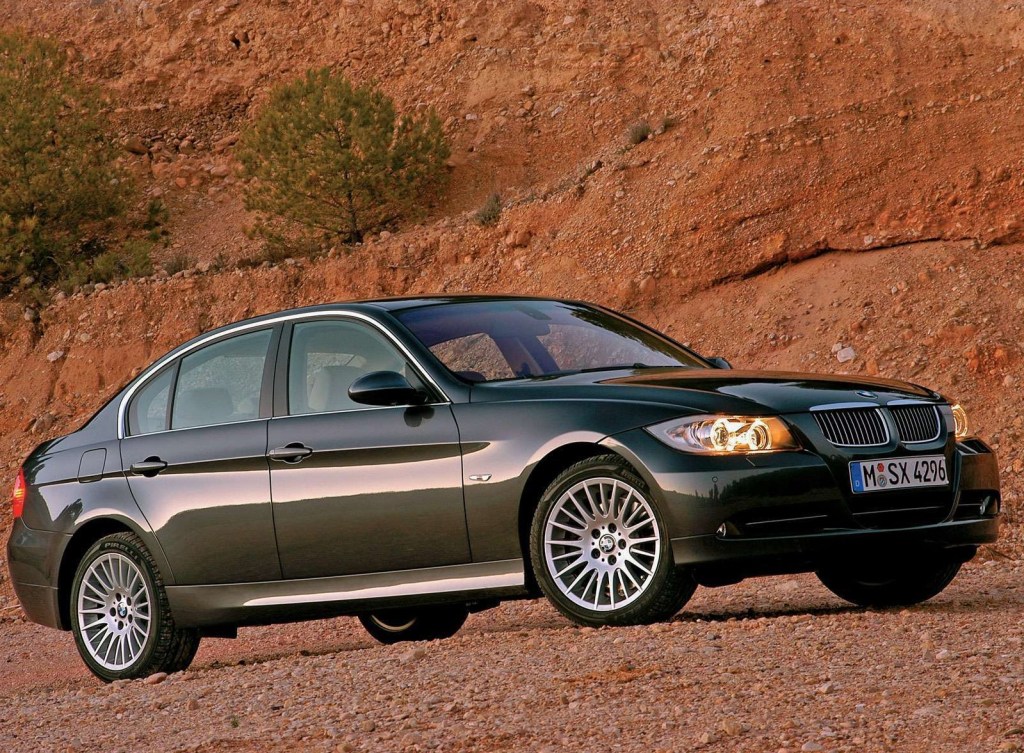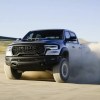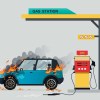
Which Used BMW Is the Most Reliable?
Although BMW makes some extremely desirable vehicles, they haven’t always lived up to the German automaker’s reputation. That’s especially the case with used BMW reliability. The E60 M5, for instance, suffered engine failures described by owners as “catastrophic.” And even well-loved enthusiast choices like the E46 M3 are known for particularly high running costs. However, it’s still possible to find a reliable used BMW. One recommended option is the non-turbocharged 2006-2011 BMW E90 3-Series.
The BMW E90 3-Series is the most reliable BMW

Although the non-turbocharged BMW E90 3-Series aren’t the most powerful, they’re actually the most reliable.
When the E90 debuted in 2006, the 325i was the base model. It came with a 2.5-liter six-cylinder engine, which made 215 hp and 184 lb-ft of torque. Then, in 2008, the E90 lineup was redesigned, and the 325i was replaced with the 328i. It had a 2.8-liter six-cylinder, which developed 230 hp and 200 lb-ft of torque. Finally, there was also the 268-hp 330i, which BimmerLife reports is one of the most powerful naturally six-cylinder BMW ever made.
Though, even ignoring the contemporary M3, which had a 4.9-liter 400-hp V8, there was also the 335i, with a 302-hp turbocharged six-cylinder (twin-turbocharged pre-2008). But in terms of reliability, more power isn’t actually better.
Why are the non-turbocharged models more reliable?

The 325i and 328i used BMW’s N52 engine, which Bimmer Life claims is one of the most reliable engines BMW ever made. The 335i, in contrast, used the N54 engine, which BMW Tuning reports was notably less reliable. And while the BMW E90 M3’s V8 makes it a performance icon, Jalopnik notes the engine is prone to rod-bearing failure. As with the 996 911’s IMS bearing, BMW Tuning notes the number of affected engines is rather small, but if unchecked, it can cause engine failure.
But it’s not just in reliability that the less-powerful BMW E90 3-Series has a lot to offer. Road & Track reports they’re more comfortable and spacious than the preceding E46 but still handle well. R&T also reports the succeeding F30 3-Series actually had lower-quality interior materials and is less satisfying to drive. The F30 also let more noise into the cabin, and even though it had a smaller 2.0-liter turbocharged four-cylinder, it was only slightly more fuel-efficient.
Plus, the E90 3-Series is rather modern in many ways. Traction and stability control are standard, and satellite navigation was available.
Known BMW E90 issues
Although the BMW E90 325i and 328i are some of the most reliable BMWs, they’re not fault-proof.
Like every other BMW engine made after 1990, the N52 came with VANOS. Essentially, this was BMW’s V-TEC equivalent, which modulated the engine’s valves for better fuel efficiency or more power. Unfortunately, the solenoids which do the modulation can fail after about 70,000 miles, BMW Tuning reports. It is worth noting, though, that VANOS issues are not specific to just the N52.
Pre-2009 MY E90s were also known to suffer from another valve-related fault. The hydraulic lifters controlling the valves could get oil-starved, causing them to clatter. However, in 2009, BMW installed a redesigned engine head that eliminated the issue. Earlier E90 3-Series were able to receive the redesigned part.
Also, like many other BMW engines, BMW Tuning reports the N52 could suffer water pump failure. The pump itself is electric, not belt-operated, and over time the plastic components can crack. The thermostat can also fail at about the same time as the pump. Though if it fails, it does so in such a way that it prevents overheating.
Finally, as with every vehicle, the BMW E90 3-Series can develop age-related problems. Specifically, the valve cover gasket and oil filter housing gasket can develop leaks.
Other used BMWs to consider
We chose the BMW E90 3-Series due to its age: the average used car is about 12 years old. Though, if you’re OK with going older, there are other used BMWs worthy of consideration.
For extra luxury, The Smoking Tire’s Matt Farah recommends the 1994-2001 BMW E38 7-Series. It too, used a very reliable BMW engine, the M60 V8, BMW Tuning reports. It also offered a V12, but its complicated electronics make it a maintenance headache. Although the V8 had some issues with pre-1999 high-sulfur gasoline, that’s no longer an issue today.
And although the E38 is noticeably older, as the 7-Series was traditionally BMW’s flagship sedan, it came with quite a few modern touches. Traction control was standard, the UK’s RAC reports, as were power-adjusted leather seats. Options included a heating steering wheel and rear parking sensors. And Autotrader reports the sedan still feels solid and well built.
For a sportier ride, consider the BMW 1997-2006 E46 3-Series. Although the M3 is known for high maintenance costs, even the non-M versions handle extremely well, Autotrader reports. Many consider the E46 to be one of the best-handling cars BMW ever made. And because so many were made, it’s not terribly difficult to find one.
Although the E46’s M54 engine suffers the same VANOS and water pump problems as the N52, BMW Tuning reports overall, it’s still a reliable powerplant. It is worth noting, though, that pre-2003 models can suffer rear subframe cracks. Also, because many were told their automatic transmission fluid was a ‘lifetime’ fluid, said fluid was never changed. As such, high-mileage automatics have been known to fail.
Follow more updates from MotorBiscuit on our Facebook page.


